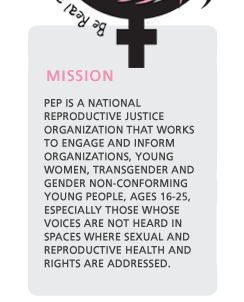Everyday, women of color struggle to lead healthy lives. Lack of health insurance, economic disparities and other factors make it more difficult for Latino and African-American women to access critical reproductive health services. Without proper access, not only do women of color suffer physically, but emotionally and spiritually, building stressful and burdened existences. As matriarchs, community leaders, and breadwinners, the health of women of color is extremely important to the long-term success and growth of communities of color and larger society. Statistics show that:
- More than one-third of Latinas are uninsured (37%), over twice the rate of white women (16%).
- African-American women are also more likely to be uninsured (20%) than white women.
- Latinas account for more than 20% of the AIDS cases among women, and the HIV infection rate among Latinas is 7 times higher than for white women.
- There are 23 Black women with AIDS for every one white woman with the disease. AIDS is the number one cause of death of Black women ages 25-34.
- Black women account for nearly 68% of the new cases of HIV reported for women.
- Among Mexican-American and Puerto Rican women, the cervical cancer incidence rate is two-to-three times higher than for white women.
- Black women experience the highest death rates from breast cancer (despite their lower incidence level compared to white women) and also are among those with the highest death rates from ovarian, cervical and uterine cancers compared to other women.
- Latinas are more than 2-1/2 times as likely as white women to have an abortion.
- Black women have three times the number of abortions than white women.
- The unintended pregnancy rate for Latinas is nearly two times the rate of white women.
- Black women have the highest rates of unintended pregnancy.
These statistics paint a daunting reality of the health of women of color. As the future generation, young women of color represent an important link for change. Our findings reveal the important context of their everyday lives and provide a starting point for meeting young women of color on their terms. Our key findings revealed a number of interesting and important facts:
- Concerns about healthcare coverage were common. Some women were totally uninsured; others had limited coverage that did not cover birth control or prescriptions.
- The types of language used to describe sex and sexual health issues varies depending on the setting and the person who is on the other side of the conversation.
- Women report negative experiences with their doctors, health professionals and hospitals.
- Family members play an important role in the decision-making process related to sexual and reproductive health issues.
- Most women of color did not embrace the traditional terminology associated with �reproductive health and rights.�
- Many of the focus group participants described their reproductive health as �important,� with the main focus on the ability and right to have children in the future.
- Dialogue about reproductive rights often begins and ends with abortion.
- Many young women of color were unsure about emergency contraception�its name, how it works and where to get it.
This report is a first step toward aligning the reproductive health experiences of young Latino and African-American women with the political potential of the reproductive rights movement. As we learn more about the personal experiences of young women of color, we strengthen our ability to build a more responsive reproductive health environment. The key findings from this research provide a documented base of knowledge that can be used to engage young women of color and create collaborative solutions that will protect their reproductive freedoms and their lives.
| 





